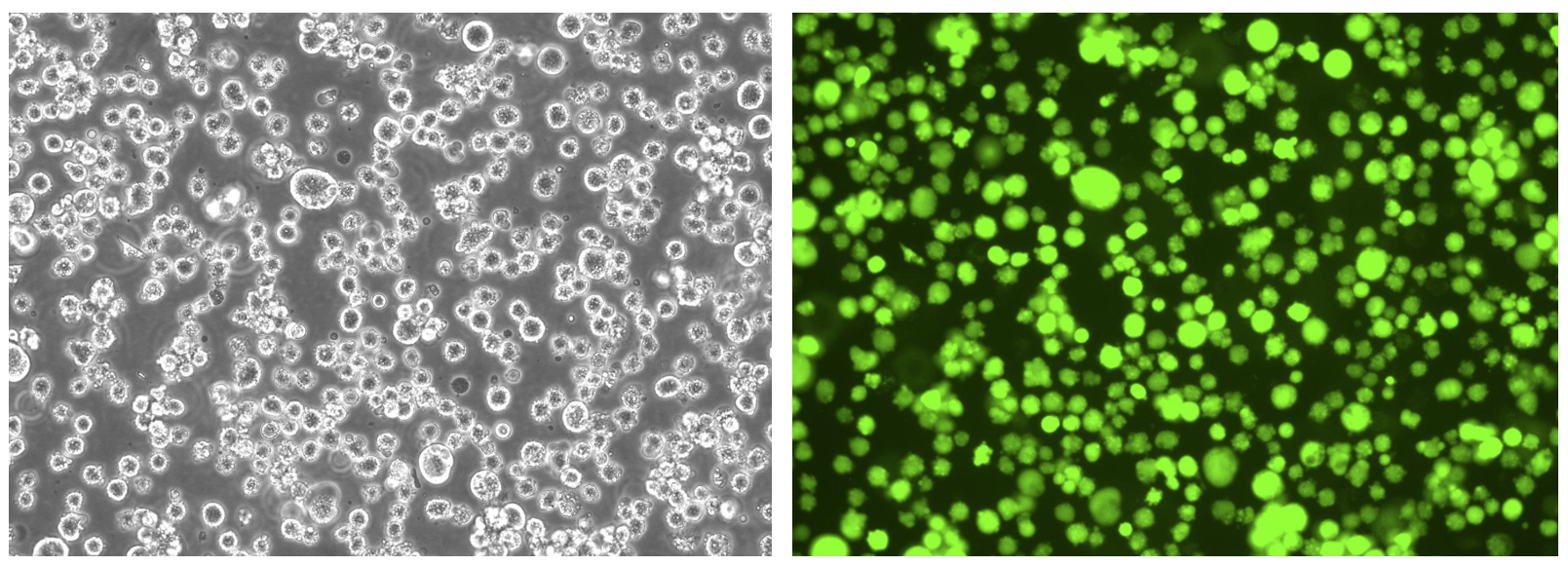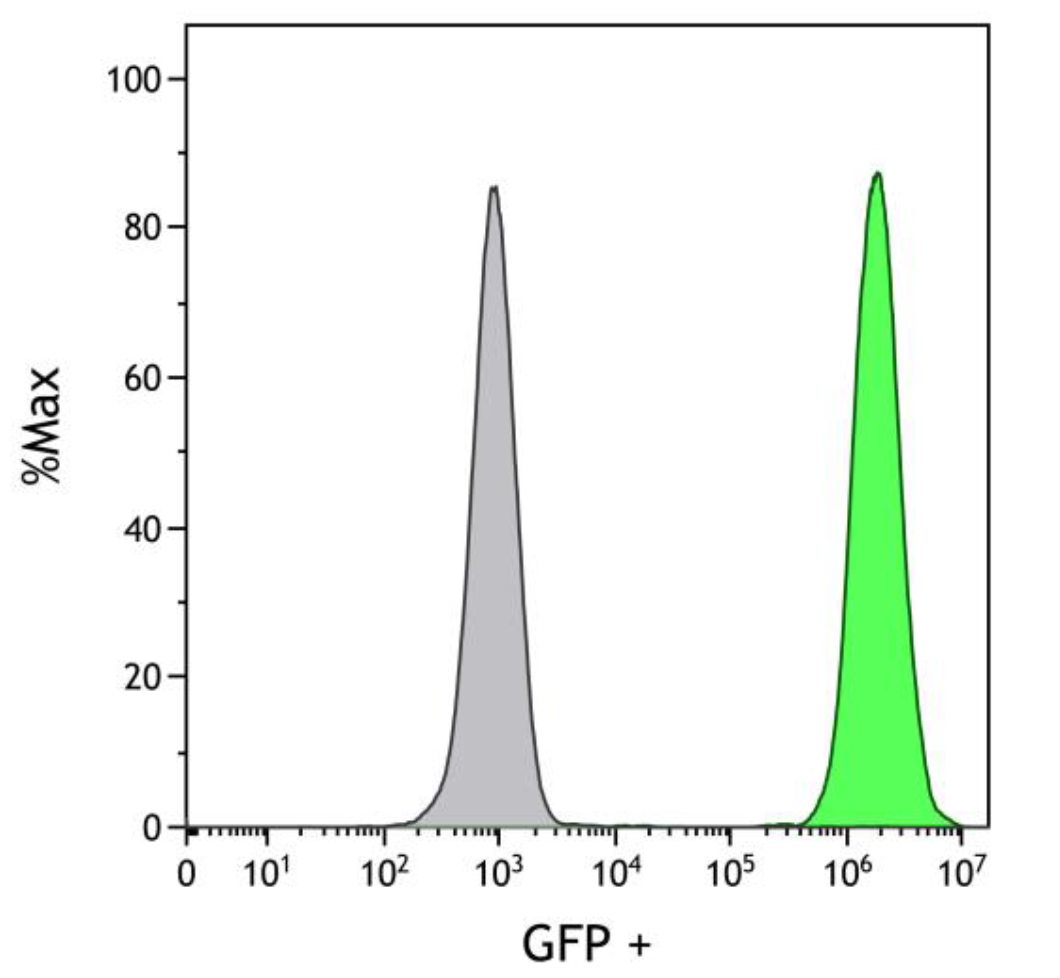K562-eGFP-Puro
| Species | Human |
| Cell Type | Chronic Myelogenous Leukemia |
| Transgene | Enhanced Green Fluorescent Protein (eGFP) |
| Selection Gene | Puromycin resistance (Puro) |
-
Description
Parental K562 cells were transduced with LV-SFFV-eGFP-PGK-Puro (Imanis #LV031) encoding the enhanced green fluorescent protein (eGFP) cDNA under the spleen focus-forming virus (SFFV) promoter and the puromycin resistance gene (Puro) under the phosphoglycerate kinase promoter. A high eGFP expressing population was generated by selection using puromycin followed by selection using a methylcellulose based semi-solid medium.
This cell line has been tested for mycoplasma contamination and is certified mycoplasma free.
The parental K562 cell line was licensed and purchased directly from ATCC*.
*The ATCC trademark and trade name and any and all ATCC catalog numbers are trademarks of the American Type Culture Collection.
-
Characterization
Morphology
 Phase and fluorescence cell photos taken at 200x magnification
Phase and fluorescence cell photos taken at 200x magnificationeGFP Expression
 K562-eGFP-Puro (green) or parental K562 (grey) cells were fixed with paraformaldehyde and analyzed by flow cytometry.
K562-eGFP-Puro (green) or parental K562 (grey) cells were fixed with paraformaldehyde and analyzed by flow cytometry. -
Growth Conditions
Complete Growth Medium: Iscove’s Modified Dulbecco’s Medium (IMDM) supplemented with 15% fetal bovine serum (FBS) and 1% Penicillin/Streptomycin.
For long-term maintenance (more than two to three weeks) addition of 6 µg/mL of puromycin to the media is recommended to maintain high eGFP expression.
These cells should be grown in the indicated medium and subcultured as needed to maintain a density between 5 x 105 and 2 x 106 cells/mL. The cells can be passaged by dilution in fresh medium, with occasional passaging using centrifugation to limit the amount of debris in cultures.
-
Usage Information
These cells are suitable for in vitro and in vivo experimentation. The eGFP transgene facilitates in vitro quantitation of cells for assays and can be used for post-mortem confirmatory assays of implanted cells.
These cells were generated via lentiviral vector transduction. The lentiviral vector used for transduction was a self-inactivating (SIN) vector in which the viral enhancer and promoter have been deleted. Transcription inactivation of the LTR in the SIN provirus increases biosafety by preventing mobilization by replication competent viruses and enables regulated expression of the genes from the internal promoters without cis-acting effects of the LTR1. Nevertheless, all work with these cells should be performed under biosafety-level 2 (BSL2) conditions by trained personnel. Institutional requirements may permit handling of these cells under BSL1 conditions if certain criteria are met.
1Miyoshi, H et al. (1998). Development of a self-inactivating lentivirus vector. Journal of Virology 72: 8150-8157.
-
Datasheet/COA
Lot Number IMP014